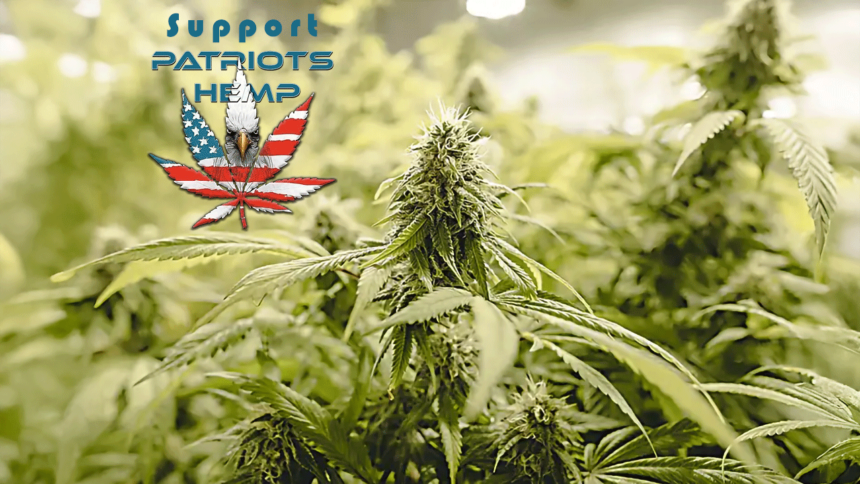Newly introduced legislation in Michigan would clear the way for people with post-traumatic stress disorder (PTSD) to legally possess and use psychedelic mushrooms.
Sponsored by Rep. Mike McFall (D), HB 5980 would legalize possession of up to two ounces of “a substance that contains psilocybin” provided a person is 18 or older and has a medical record “that demonstrates the individual has a diagnosis of post-traumatic stress disorder.” The change would also apply to substances containing psilocin, another psychoactive chemical found in mushrooms.
In addition to the weight limit, the proposal allows possession “only for personal use.” And unlike more regulated psychedelics programs, such as Oregon’s therapeutic psilocybin program, the Michigan measure doesn’t contemplate licensing an industry to produce and dispense psychedelics.
However, the proposal does state that qualified individuals would be “not in violation of” laws barring the creation, manufacture, possession or use of psilocybin and psilocin.
McFall’s new bill, HB 5980, was filed on Thursday with co-sponsors Reps. Dylan Wegela and Kimberly Edwards, both Democrats. It’s been referred to the House Criminal Justice Committee, though it hasn’t yet been scheduled for a hearing.
Late last year, McFall indicated his support for the reform on social media, saying he was working to decriminalize psychedelics for PTSD patients in the state.
I’m with Texas Congressman @DanCrenshawTX on this one.
Never thought I’d be saying that. I’m currently working to decriminalize #Psilocybin for Michiganders with #PTSD.https://t.co/Elstwt94R7— Mike McFall (@VoteMcFall) December 16, 2023
Already at least five municipalities in Michigan have acted at the lower level to end criminal enforcement of laws against psychedelics. Most recently, in January, the Ypsilanti City Council unanimously passed a resolution to deprioritize enforcement of laws against psychedelic substances and express support for a statewide bill to legalize certain entheogenic plants and fungi.
That measure, much like those adopted by other localities in the state, specifically says that it is not intended to legalize the commercial sale of psychedelics. Rather, it makes the arrest and investigation of people for psychedelics-related activities such as possession and cultivation “the lowest law enforcement priority” for the city.
Other Michigan municipal governments that have moved to decriminalize psychedelics include Detroit, Ann Arbor, Ferndale and Hazel Park.
Not all Michigan cities to consider a decriminalization proposal have adopted it, however. Last May, the East Lansing City Council narrowly rejected a similar resolution, with the mayor and city attorney voicing concerns about possible legal ramifications.
In 2021, Grand Rapids, lawmakers approved a resolution supporting the decriminalization of a wide range of psychedelics. That measure, however, disappointed activists because it didn’t actually change any city enforcement practices and merely expressed support for future reforms.
In 2022, a group of activists failed to qualify a psychedelics legalization initiative for the ballot, saying they would refocus their efforts on the 2024 election.
Meanwhile, in August, Michigan lawmakers sent a letter to Congress, the U.S. Department of Defense and Department of Veterans Affairs (VA) urging them to prioritize research and investment in psychedelics and other “non-technology treatment options” to address psychological trauma from military service.
Also in August, the head of the National Institutes of Health (NIH) said there’s “growing evidence” that psilocybin could represent a novel therapy option in the treatment of substance misuse, depression, anxiety and other mental health conditions.
While NIH Director Monica Bertagnolli cautioned that the agency is not advising people to use the psychedelic for recreational purposes, initial studies looking into its therapeutic potential have shown promising results, she said, especially as it concerns increasing plasticity in the brain that could help address major mental health disorders.
Psilocybin “comes with health risks and isn’t recommended for recreational use,” she said. But “there’s growing evidence that—under the right conditions—its effects on the brain might be harnessed in the future to help treat substance use disorders or mental illnesses.”
Like the top NIH official, National Institute on Drug Abuse (NIDA) Director Nora Volkow said last year that there is emerging evidence that psychedelics carry “significant potential” as therapeutic treatments for certain mental health conditions, and it’s a topic of “great interest” for researchers.
Meanwhile, the U.S. House of Representatives recently approved amendments to a large-scale spending bill that would authorize VA doctors to issue medical marijuana recommendations to military veterans and support psychedelics research and access.
The Senate Appropriations Committee also recently passed report language for appropriations legislation conveying concerns about restrictions on marijuana and psychedelics research imposed by current prohibition.


















